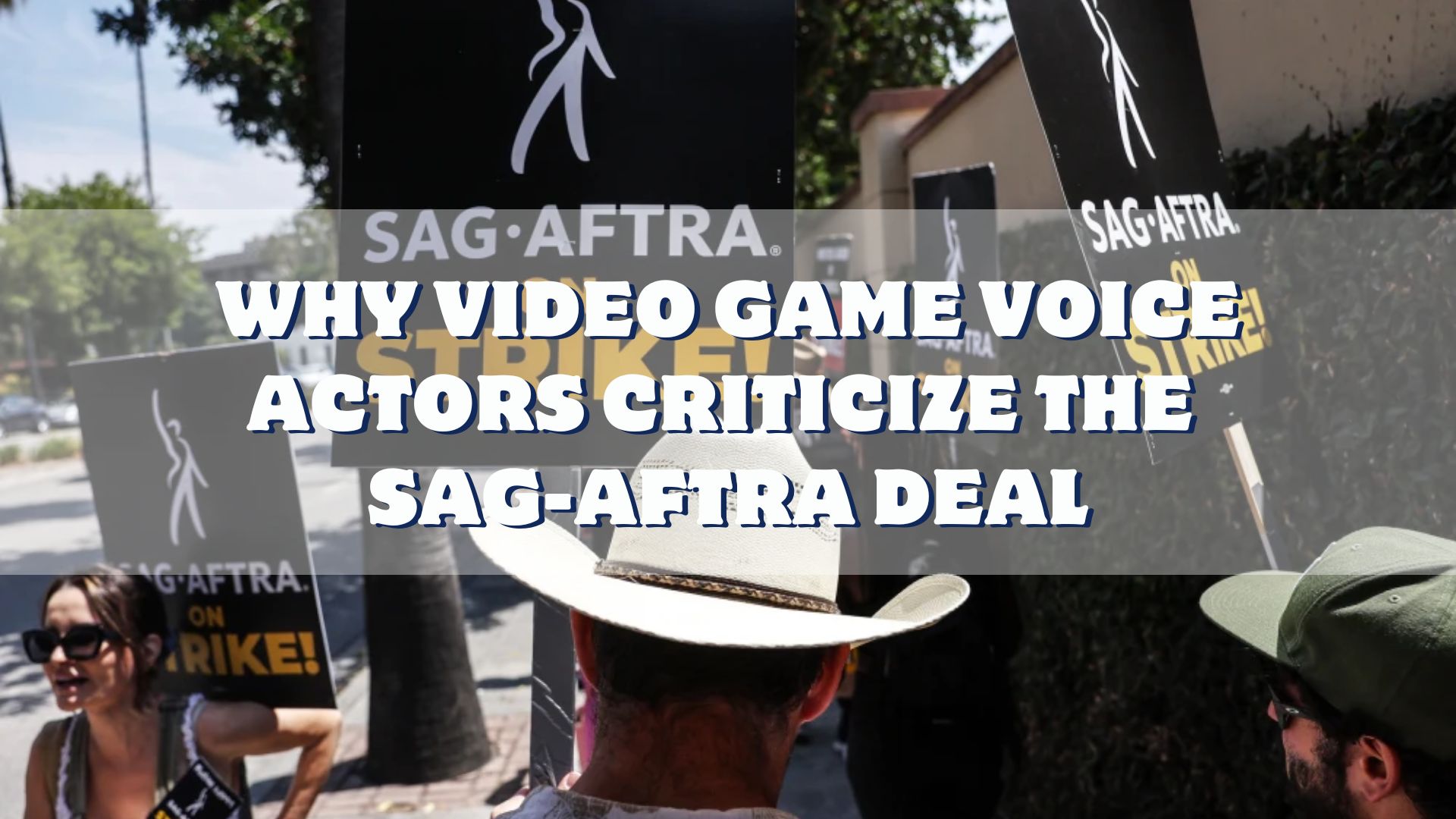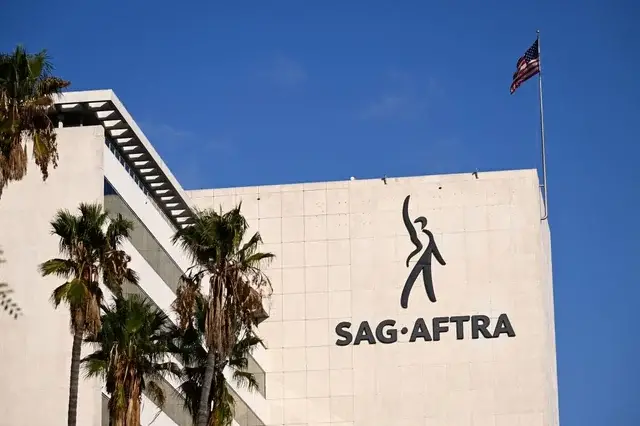Why Video Game Voice Actors Criticize The SAG-AFTRA Deal

Imagine you’re a voice actor, lending your unique vocal talents to bring video game characters to life. Now, picture a world where your voice, your very essence, could be replicated by artificial intelligence (AI). This is the reality facing voice actors following the recent agreement between SAG-AFTRA and Replica Studios. This article delves into the complexities of this deal, exploring why it has sparked such controversy among voice actors.
This article explores the SAG-AFTRA agreement with Replica Studios and its impact on video game voice actors. We analyze the voice actors’ reactions, the impact of AI agreements on the gaming industry, ethical considerations and performers’ rights, and SAG-AFTRA’s role in future AI integration.
Table of Contents
What Is SAG-AFTRA?
SAG-AFTRA, the Screen Actors Guild-American Federation of Television and Radio Artists, stands as a beacon in the entertainment industry, representing a diverse tapestry of talents. Encompassing over 160,000 members, this influential union includes actors, announcers, broadcast journalists, dancers, DJs, news writers, editors, program hosts, puppeteers, recording artists, singers, stunt performers, voiceover artists, and other media professionals. SAG-AFTRA is more than a union; it’s a collective force advocating for the rights, fair compensation, and optimal working conditions of its members. It plays a crucial role in shaping an industry where talent is not just seen and heard but also valued and protected. By establishing and enforcing collective bargaining agreements, SAG-AFTRA ensures equitable compensation, access to benefits, and safe, respectful working environments for its members.
SAG-AFTRA and Replica Studios: A Landmark AI Voice Agreement
In a groundbreaking move, SAG-AFTRA signed a deal with Replica Studios, an AI voice technology company, marking a new era in voice acting. This agreement acknowledges the growing role of AI in creating digital voice replicas, setting a precedent for ethical AI use in the industry. It ensures informed consent and fair compensation for voice actors whose performances are digitally replicated. This deal is significant not only for protecting voice actors from potential exploitation in the AI era but also for opening new opportunities in emerging technologies. It’s a bold step into the future, balancing technological advancements with the safeguarding of artists’ rights and dignities.

Voice Actors' Reaction: Concerns and Criticisms of the AI Deal
Fear of Job Replacement
A primary concern among voice actors is the fear of being replaced by AI technology. Many worry that AI’s ability to replicate voices could lead to a reduced demand for human voice talent, threatening their livelihoods and careers in the industry.
Quality of Artistic Expression
Voice actors have also raised concerns about the potential decline in the quality of artistic expression. They argue that AI, despite its advancements, cannot replicate the emotional depth and nuanced performances that human actors bring to their roles.
Ethical Implications
There are significant ethical implications involved in the digital replication of voices. Voice actors express unease about the use of their voices without ongoing compensation or control, and the potential for their work to be used in contexts they did not consent to.
Lack of Transparency and Involvement
Another criticism is the perceived lack of transparency and involvement in the decision-making process. Some voice actors feel they were not adequately informed or consulted about the agreement, leading to a sense of betrayal and mistrust towards SAG-AFTRA.
Concerns Over Fair Compensation
The deal has also sparked worries about fair compensation. Voice actors are concerned about how their performances and likenesses will be monetized in the AI era and whether they will be justly compensated for the use of their digital replicas.
The Need for Stronger Protections
Finally, voice actors are calling for stronger protections and safeguards in the rapidly evolving landscape of AI in voice acting. They emphasize the need for clear guidelines and regulations to ensure their rights and contributions are respected and protected in the face of technological advancements.
Impact of AI Agreements on the Video Game Industry
Enhancing Creative Possibilities
The integration of AI in voice acting, as seen in the SAG-AFTRA and Replica Studios agreement, opens up new creative possibilities. Game developers can now access a wider range of voices and styles, potentially leading to richer and more diverse character portrayals in games.
Economic Implications
This agreement could lead to significant economic changes in the video game industry. While AI might reduce costs associated with voice acting, it also raises questions about the redistribution of these savings. Will they lead to lower game prices, higher profits for developers, or more investment in other creative aspects of game development?
Impact on Voice Acting Profession
The rise of AI in voice acting could lead to a transformation of the voice acting profession. While it might reduce opportunities for traditional voice acting roles, it could also create new roles in AI voice training and quality assurance, requiring a different skill set.
Ethical Considerations and Performers' Rights in AI Voiceover
The ethical considerations in AI voiceover primarily revolve around consent, compensation, and authenticity. Ensuring that voice actors have control over the use of their digital replicas is crucial. This involves clear agreements on how their voices and likenesses are used, ensuring fair compensation for their use, and addressing concerns about the authenticity and emotional depth of AI-generated performances. The challenge lies in balancing the technological advancements with the preservation of the unique qualities and emotional nuances that human actors bring to their roles.
SAG-AFTRA's Role in Future Shaping AI Integration
SAG-AFTRA’s role in shaping the future of AI integration in the entertainment industry is multifaceted. The union is positioned to advocate for the rights and interests of its members in this evolving landscape. This includes negotiating fair terms for AI use in contracts, ensuring proper compensation, and setting industry standards for ethical AI use. Additionally, SAG-AFTRA can play a crucial role in educating its members about AI technology and its implications, helping them adapt to and benefit from these changes. The union’s involvement is key to ensuring that the transition to AI integration is done in a way that respects and protects the artists’ contributions and livelihoods.
Conclusion
The SAG-AFTRA deal with Replica Studios marks a significant moment in the intersection of technology and the arts. While it opens up new possibilities for the use of AI in voice acting, it also raises important questions about the future of the profession. As we move forward, the voice acting community, along with SAG-AFTRA, will play a vital role in navigating these uncharted waters.

